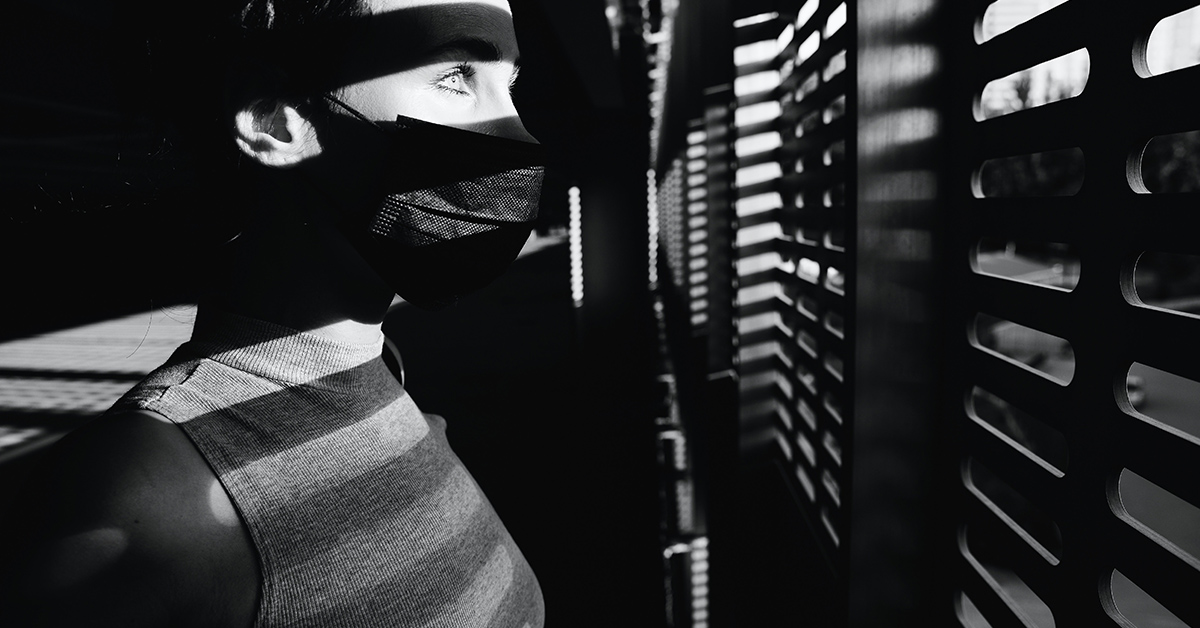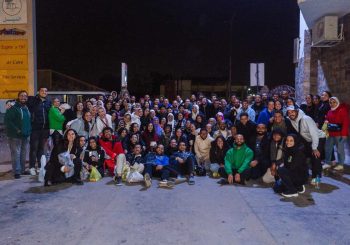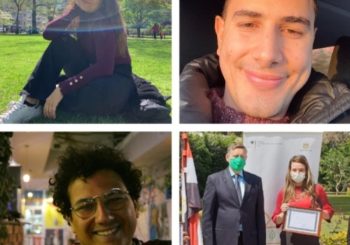There are various articles dispersed throughout the internet that discuss what might possibly become of the world once the COVID-19 pandemic has either been controlled or eradicated. While the possibilities are endless, it could be interesting to imagine two extreme and polar opposite outcomes.
Considering the amount of contradictory information that can be found every which way regarding how the pandemic has been affecting the climate, it may or may not be possible that some of the extreme measures that have been taken to combat COVID-19 are also combatting climate change.
In addition to this, the fact that the world is on lock-down and families have therefore been spending more time together at home – leading to bonding and self-reflection and the like – seems to have led to somewhat of a rise in general positive outlooks on life and showing gratitude for the things we have (rather than focusing on what we’re missing).
On the other hand, the world economy seems to be collapsing with many losing their jobs. There are also many people who don’t seem to be taking the quarantine as well as others – perhaps due to their less fortunate circumstances, or their inability to cope with the change mentally, or even having lost someone dear to them as a result of the pandemic.
Taking all of these various factors into consideration, as well as the fact that no one actually knows what the future has in store (it could most likely be a mixture of the two proposed extreme outcomes to follow), we can imagine a utopian outcome and a dystopian outcome following the maintenance or eradication of COVID-19.
Sunshine and Happiness: a Utopian Post-Coronavirus World

Picture this: blue skies overhead, a beautifully golden summer’s day, people are walking, cycling, carpooling and there may be just about two or three people still donning masks in sight.
People seem to be happy, there are groups of people gathered together all around – they seem to try to be making up for all the hugs and kisses they’ve missed so much. People also seem so much more helpful than usual, everyone is kind and empathetic, they want to do their part to help their community in any way possible – the younger generation continue picking up groceries for their neighborhood elders, and people are generally more keen on helping those in need.
Everyone also seems to be a lot more fit than usual – people have taken up all sorts of exercise, and have become a lot more conscious towards healthy eating habits – the neighborhood vegetable and fruit seller at the corner now has a booming business. Everyone is contributing to the household cooking as well.
And to top it all off, most of the country’s workforce has slightly altered their structure in order to encourage a more efficient work environment for all – allowing leniency towards ‘work from home’ and vacation days.
Although social media and the internet has generally played a large role in helping people worldwide cope with quarantine, the fact that we are now able to physically be in each other’s presence has made us lose interest in the escape that was once offered by the online world.
Chaos and Fear: A Dystopian Post-Coronavirus World

Picture this: the streets continue to be empty, not one person leaves their home without a mask and people generally seem to be miserable, beaten and tired.
Every time we thought it was finally gone, a second wave appeared and then a third, then a fourth and even when the pandemic seems to have finally been controlled or eradicated, it has ultimately left the world devastated.
People have gotten used to living in fear, and they continue to live in fear even after it has been officially announced that COVID-19 is no longer a threat. People have forgotten what it means to gather in large (or even small) groups, and they shudder at the thought of someone standing an inch too close.
People no longer long for the comfort of being in the arms of a loved one, but rather settle for a mere handshake that they undertake with utmost resistance. After having their hopes and positive outlooks destroyed one too many times, everyone is now merely looking out for themselves.
The global economy is destroyed and small local businesses have slowly died out. The general population struggles to either find a job or maintain a job, and – in attempts to quickly re-build what they have lost – the workforce has become stricter than ever.
Ironically enough, the only inkling of a connection to our humanity that we have left, comes through the only way we now feel comfortable communicating and connecting – social media.
A World of Resiliency
It is important to keep in mind that the two worlds portrayed above are mere reflections of what, in fact, are two extreme imagined outcomes. The world is not black or white, and no one truly knows how we will come out of this.
Throughout history however, the world has proven time and again to overcome devastations it has faced, and bounce back. Whether or not humanity comes out better and stronger following these unfortunate times in history is another matter of debate.
Following the Spanish Flu outbreak of 1918 for example – which killed millions and devastated the economy at the time – when it comes to the world’s economy, businesses found that they were able to re-build themselves relatively fast. In fact, according to an article on The Economist, “American states harder hit by the disease grew faster in its aftermath.” The article also predicts that “[COVID-19] may force firms to embrace new technologies in order to operate while warehouses and offices are empty, with lasting effects on growth and productivity.”
In addition to this, there have also been quite a few notable changes to happen to the world following various wars such as World War I (WWI), for example. According to an article published as part of the University of Southern California (USC) about how WWI re-shaped the modern world, “WWI was a time when the best physicians and researchers were in the military, not in civilian life, caring for patients, so that led to great discoveries that made a huge difference for public health.”
The fact of the matter is, nothing is certain- however, both humanity and the world will be left with changes and new patterns of living as a result of the pandemic.
*The opinions and ideas expressed in this article do not reflect the views of Egyptian Streets’ editorial team. To submit an opinion article, please email [email protected].






Comments (0)